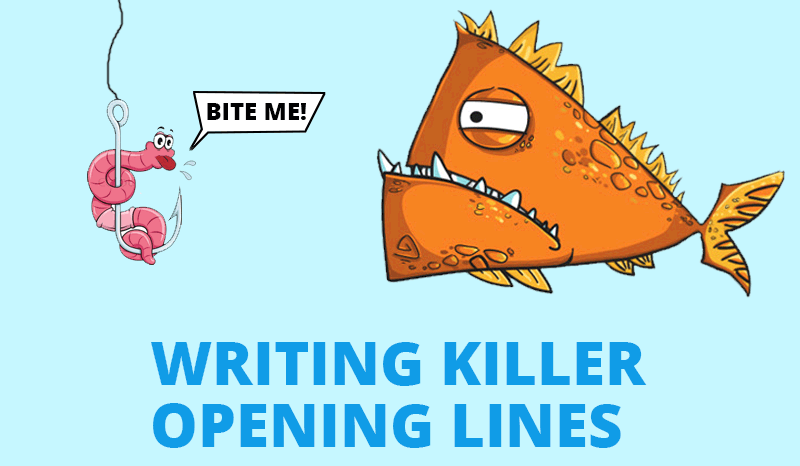How to Write A Killer Opening:Clever Ways To Entice Readers

Bob Girolamo
Words are more than just a means of communication, they are a way of enchanting readers with your ideas, perspective or product. However, attracting your audience depends critically on your opening sentence.
How can you tap the magic of language to mesmerize people from the outset? Here are 3 tips that will help you craft dazzling introductory lines.
Use Humor
Words are more than just a means of communication, they are a way of enchanting readers with your ideas, perspective or product. However, attracting your audience depends critically on your opening sentence.
How can you tap the magic of language to mesmerize people from the outset? Here are 3 tips that will help you craft dazzling introductory lines.People love to laugh and humor is one of the most dependable ways to interest readers. So, employing a deft comedic touch is a great technique to add to your writing go-tos. For example, you could say something like:
“I’ve always found that politics is more entertaining than professional wrestling, even if it’s not quite as sportsmanlike.”
A chuckle-inducing opening is a terrific way you can signal that you have a quirky, interesting, and entertaining point of view. In particular, look for clever plays on words, unexpected analogies -- like an implied comparison between politics and professional wrestling -- or a tongue-in-cheek attitude, which can put a smile on readers’ faces.
Famous examples of using humor in an opening line:
"In the beginning, the universe was created. This has made a lot of people very angry and been widely regarded as a bad move." (From The Restaurant at the End of the Universe by Douglas Adams).
"Nick Naylor had been called many things since becoming the chief spokesman for the Academy of Tobacco Studies, but until now no one had actually compared him to Satan." (From Thank You for Not Smoking by Christopher Buckley).
Harness the power of figurative language
To paraphrase Voltaire, poetry says more than prose, but in fewer words. That’s because metaphor -- the lifeblood of verse and balladry -- is saturated with energy and loaded with meaning. For example, you could say something like:
“Metaphor is the use of language to pack a punch. So, if you want to knockout readers from the opening bell, then lead with a powerful figure of speech.”
Figurative language zeros in on a hidden connection between seemingly unrelated ideas, but it also taps the right brain’s associative network. As a result, good metaphors have pinpoint accuracy, but they also expand our imaginations. You might say, that’s a powerful, one-two combination.
Famous example of using figurative language in an opening line:
“Ships at a distance have every man's wish on board.” (From Their Eyes Were Watching God by Zora Neale Hurston).
Utilize imagery
Of course, metaphor and imagery are inextricably linked. However, it is worth calling attention to the inherent power of imagistic language.
Used cleverly, words are symbols that create visuals impressions in our mind. Picturesque language entices the reader because imagery nourishes our cognitive faculties on a deep level. For example, you could say something like:
“A good opening line is an appetizer that leaves readers ravenous for more.”
Look for words that paint pictures on the canvas of thought and you will tap a powerful dimension of language.
Famous example of using imagery in an opening line:
“The towers of Zenith aspired above the morning mist; austere towers of steel and cement and limestone, sturdy as cliffs and delicate as silver rods.” (From Babbitt by Sinclair Lewis).
Conclusion
Conjuring a killer opening line is as much an art as it is a science. Invariably, it takes effort because you have to expend mental energy to create something exciting and new.
Exposing yourself to exceptional introductory sentences is one of the best ways to start generating your own. Think about some of the patterns that outstanding writers use to hook readers. Here are a few additional opening motifs:
● Raise an interesting question and promising to answer it later on. ● Provide a very intriguing fact that stimulates the reader’s curiosity to learn more. ● Surprise readers by introducing something incongruous or unexpected.
Look for example types that grab you. Then you can use your favorites as templates. For example, once you settle on an essential pattern, then you can use them as a starting point for your own creativity.
Be original and captivate your audience with playful, witty and slightly unpredictable writing, and you’ll keep them engaged.

